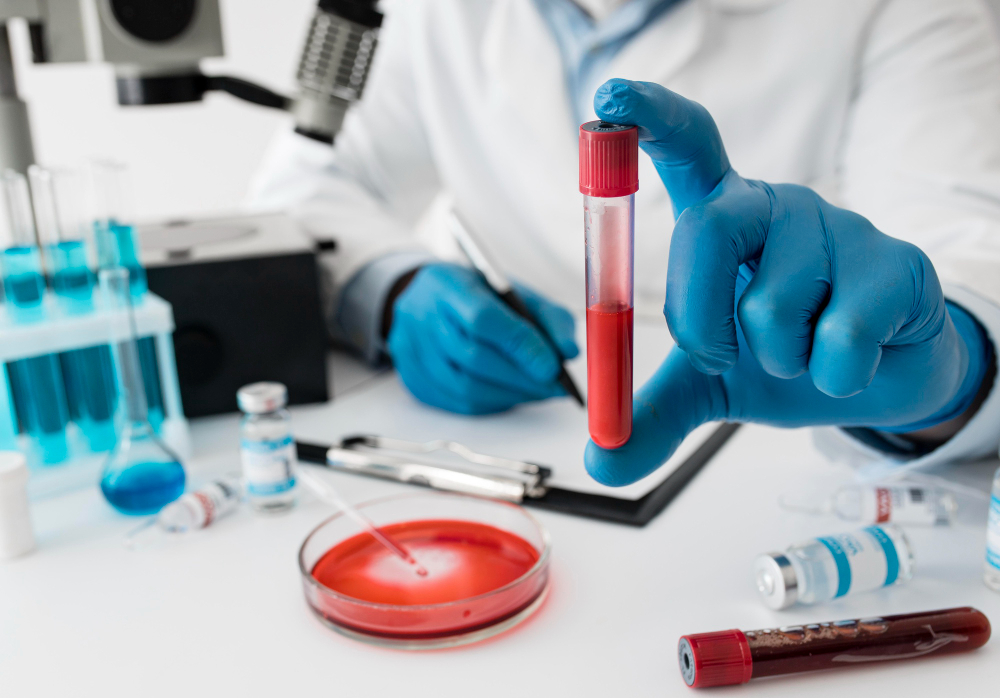
What is Hematometra?
Hematometra is a medical condition characterized by the accumulation of blood within the uterus. This condition typically occurs when the normal flow of menstrual blood is obstructed, leading to the buildup of blood within the uterine cavity. Hematometra can cause symptoms such as pelvic pain, menstrual irregularities, and abdominal distension.
How is Hematometra diagnosed?
Diagnosing Hematometra usually involves a combination of medical history assessment, pelvic examination, and imaging studies. A pelvic examination may reveal a swollen, tender uterus, and imaging studies such as ultrasound or magnetic resonance imaging (MRI) can help visualize the presence of blood within the uterine cavity. In some cases, additional diagnostic tests such as hysteroscopy or endometrial biopsy may be performed to evaluate the underlying cause of the hematometra.
What are the causes of Hematometra?
Hematometra can occur due to various underlying causes, including:
- Obstruction of the cervical canal or uterine cavity
- Congenital anomalies of the reproductive tract
- Previous pelvic surgeries or procedures
- Endometrial disorders such as endometrial hyperplasia or adenomyosis
- Menstrual abnormalities or hormonal imbalances
What are the symptoms of Hematometra?
Common symptoms of Hematometra may include:
- Pelvic pain or cramping
- Menstrual irregularities, such as missed periods or heavy bleeding
- Abdominal distension or bloating
- Pressure or fullness in the lower abdomen
- Difficulty urinating or defecating
How is Hematometra treated?
Treatment for Hematometra depends on the underlying cause, severity of symptoms, and individual patient factors. In many cases, the primary goal of treatment is to relieve symptoms and prevent complications. Treatment options may include:
- Medication: Nonsteroidal anti-inflammatory drugs (NSAIDs) or hormonal medications may be prescribed to reduce pain and regulate menstrual bleeding.
- Manual or surgical drainage: In cases of severe hematometra, manual or surgical drainage of the uterine cavity may be necessary to alleviate symptoms and prevent complications.
- Surgical intervention: Surgical procedures such as hysteroscopy, dilation and curettage (D&C), or uterine evacuation may be performed to remove the obstructing tissue or correct underlying anatomical abnormalities.
What is the prognosis for individuals with Hematometra?
The prognosis for individuals with Hematometra depends on various factors, including the underlying cause, severity of symptoms, and success of treatment interventions. With appropriate medical management and follow-up care, many individuals with Hematometra can experience relief from symptoms and achieve positive outcomes.
What are the procedure after surgery?
Rest and Limit Activity : Avoid strenuous activities, heavy lifting, and vigorous exercise for the recommended period.
Keep the Area Clean : Gently clean the surgical area with water and mild soap as directed by your surgeon. Pat the area dry with a clean towel, and avoid rubbing or scrubbing.
Take Prescribed Medications : Take any prescribed pain medications, antibiotics, or other medications as instructed by your surgeon to manage pain and prevent infection.
Avoid Sexual Activity : Refrain from sexual intercourse and other sexual activities until your surgeon advises it is safe to do so. This typically takes several weeks to a month or more, depending on individual healing.
Wear Loose Clothing : Wear loose-fitting clothing, preferably cotton underwear, to minimize friction and promote airflow to the surgical area.
Attend Follow-Up Appointments : Keep all scheduled follow-up appointments with your surgeon to monitor your healing progress and address any concerns or complications promptly.
Avoid Tampons and Menstrual Cups : Refrain from using tampons and menstrual cups during your recovery period to prevent irritation and infection.
Stay Hydrated and Eat Nutritious Foods : Drink plenty of water and eat a balanced diet rich in vitamins and nutrients to support healing and boost your immune system.
Why choose VMG Hospital for the treatment of Hematometra?
VMG Hospital in Hisar, Haryana, is a trusted provider of comprehensive gynecological and reproductive health care for individuals with Hematometra and other reproductive disorders. Our team of skilled gynecologists, surgeons, and specialists has extensive experience in diagnosing and treating complex gynecological conditions, ensuring personalized care and optimal outcomes for each patient. With state-of-the-art facilities and a patient-centered approach, VMG Hospital is committed to delivering compassionate care and helping individuals with Hematometra achieve relief from symptoms and improved quality of life.